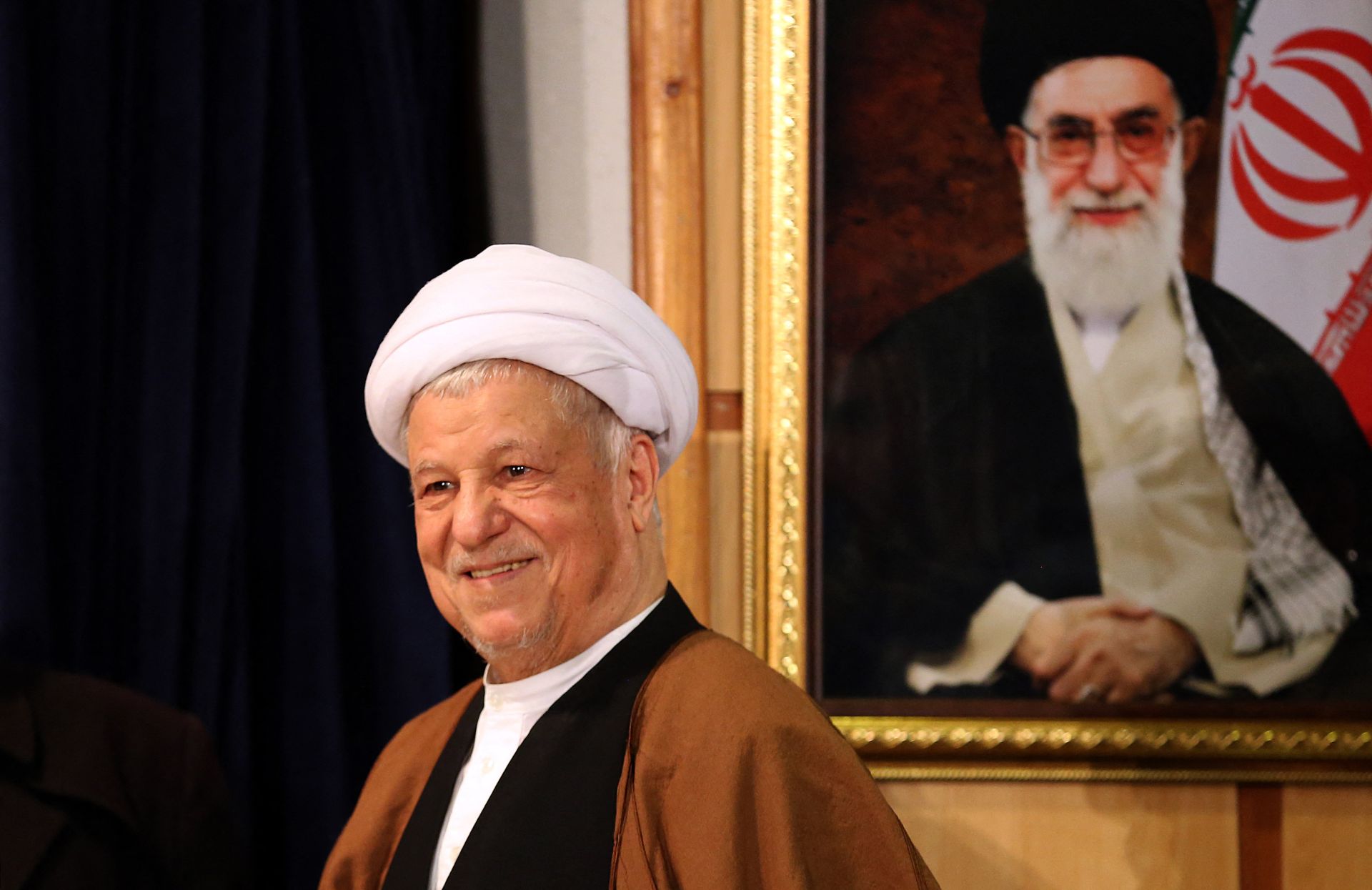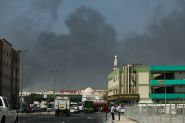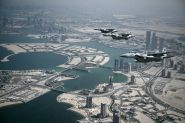- Home
- Middle East
- Had It Not Been for Rafsanjani…

Iranian former president and head of the Expediency Council, Akbar Hashemi Rafsanjani ©AFP
During the Iran-Iraq war, Rafsanjani took a historic stance, emphasizing the need to preserve the “gains of the revolution” and avoid sending more Iranian troops to an inevitable death. Let us once again reflect on Rafsanjani, hoping that history may repeat itself and that someone can convince the Supreme Leader — who observes our demise from afar — that this massacre must end immediately.
Iran, which seeks today to eliminate Israel through its regional proxies, was not always in continuous conflict with Tel Aviv. Some historical perspective could be insightful.
Imam Khomeini arrived in Tehran aboard a French plane in 1979, following the overthrow of the Shah’s regime. A year later, the Iran-Iraq war broke out. Khomeini’s anti-Western rhetoric, especially against the United States, which he referred to as the “Great Satan,” did not stop the Iran Gate scandal (also known as Iran-Contra Affair) or the export of American weapons to Tehran. Slogans often crumble under the pressure of self-interest.
Similarly, Israel secretly supported Iran in exchange for intelligence on the “Ozirak” nuclear reactor in Iraq, which Tel Aviv targeted in 1981.
Continuing the historical narrative, we reflect on the events of the Iran-Iraq War, which encompassed attacks on oil tankers in the Arabian Gulf, the closure of pipelines, a decline in foreign currency revenues, and stagnation in economic growth for both nations. Furthermore, Iraq also provided support to the Mujahedin al-Khalq’ Organization (MKO), before ultimately handing them over to Iran, which led to their systematic extermination.
The year 1982 proved pivotal, marking the ascent of the Islamic Revolutionary Guard Corps (IRGC) at the expense of the regular Army, which had been exhausted by the conflict. This period also saw the ousting of President Abu al-Hasan Bani-Sadr, and the assassination of his successor, Mohammad Ali Rajai, followed by the election of Ali Khamenei as president. Khamenei would later be appointed as the Supreme Leader of the Revolution following Khomeini’s death in 1989.
The war significantly strained the nascent Iranian regime, particularly after Tehran suffered the loss of 240,000 of its citizens, either killed or wounded. At that time, the Iranian leadership was divided into two opinions:
The first, led by President Ali Khamenei, advocated for the continuation of the war with Iraq.
The second, spearheaded by Hashemi Rafsanjani, the Speaker of the Islamic Consultative Assembly, was crucial in promoting acceptance of UN Resolution 598, which called for a ceasefire. Khomeini famously described this resolution as “drinking poison.”
Rafsanjani's stance was historically significant and served as a vital lesson that deserves revisiting, especially today. He emphasized the importance of preserving the “gains of the revolution” and avoid sending more Iranian troops to an inevitable death.
At that time, the Bedridden Supreme Leader expressed concern that ending the war would grant Saddam Hussein a victory. Rafsanjani replied, “Let Saddam declare a phantom victory and raise his arches of triumph; he will soon fall for two reasons: his hostility toward the United States and Israel, and his oil ambitions in neighboring countries. As for us in Iran, we will secure our nation, our children, and our regime for decades to come.”
Rafsanjani's insights ultimately led to the establishment of what is now referred to as the “Iranian proxies” in the region, beginning in Lebanon in 1982 as a response to Israel's invasion of the south.
Thus, began the rise of Hezbollah, followed by a cascade of organizations supported or established by Iran, which expanded into Yemen, Syria, Iraq, and Palestine. These groups pledge loyalty to the Supreme Leader and receive funding to fight on behalf of “the country’s children,” or citizens, while Iran's regional influence continues to grow, particularly as a nuclear power.
Why recount this historical narrative? Because the players have not changed. France remains focused on its vital interests in Iran, fully aware that the notion of eliminating Israel is a delusion used to mislead certain populations in the region. In response, Israel acts in a “calculated” manner against Iran, which negotiates in Lebanon's name while waging war through it.
We observe the paralysis of the Lebanese government, witness the daily scenes of bloodshed and displacement, and feel the danger encroaching from all sides. Our dreams of a viable State are being shattered. Social media bombards us with the populism of influencers and the degradation of some journalists and commentators. As for us — the silent majority — our only recourse is to avoid falling into the trap of external bets and becoming prisoners of the victor's narrative while our homeland crumbles and its people are slaughtered.
Let us once again reflect on Rafsanjani, hoping that history may repeat itself and that someone can convince the Supreme Leader — who observes our demise from afar — that this massacre must end immediately. Someone must remind him that Benjamin Netanyahu is even madder and more ruthless than Saddam Hussein. Most importantly, the Lebanese people must recognize that their only path to salvation lies in the principle of “no victor, no vanquished.” They must remain within the warm Arab womb and refuse to be used as pawns or chess pieces maneuvered by regional and international powers... leading them toward hell.
Read more



Comments